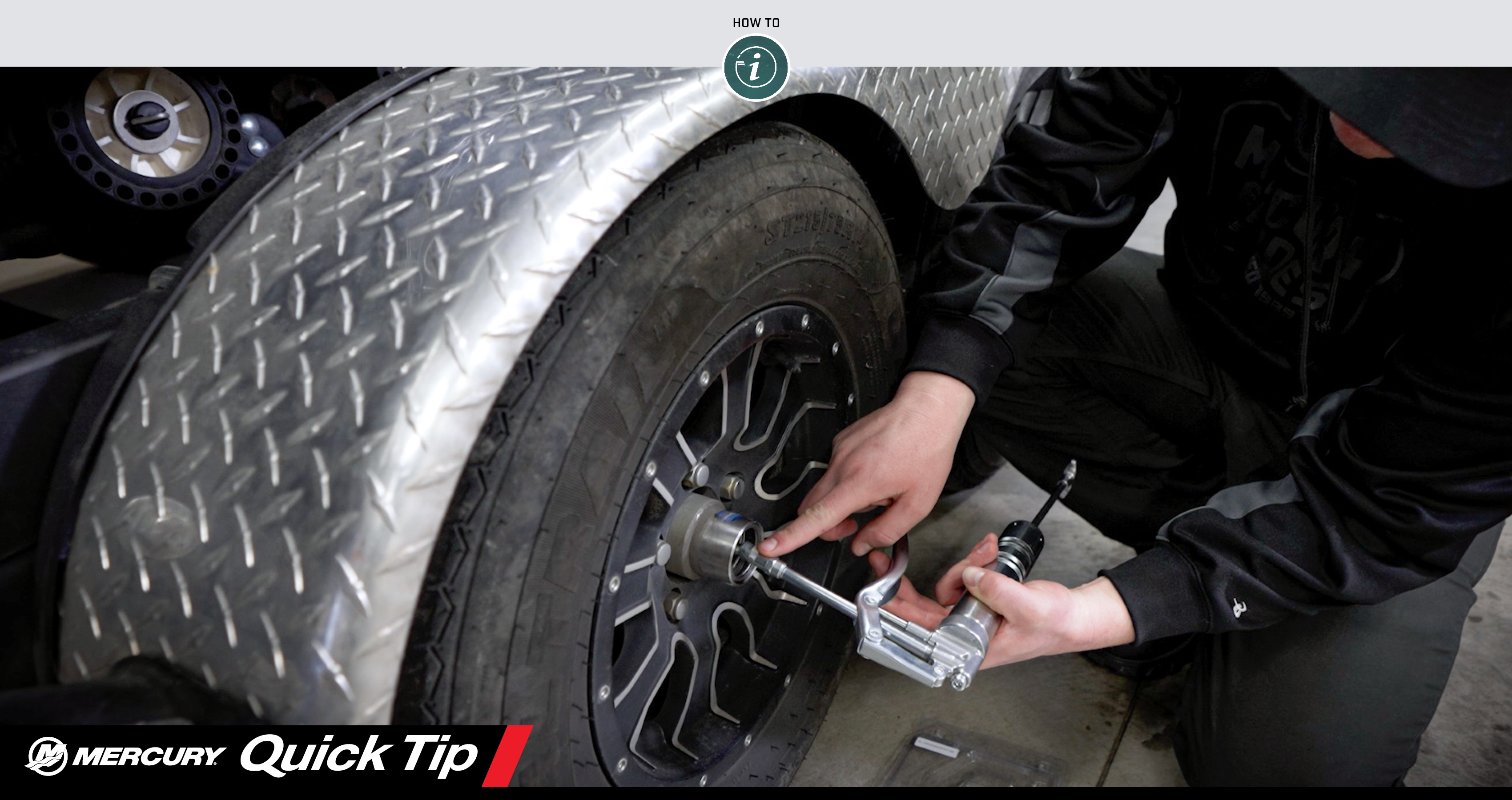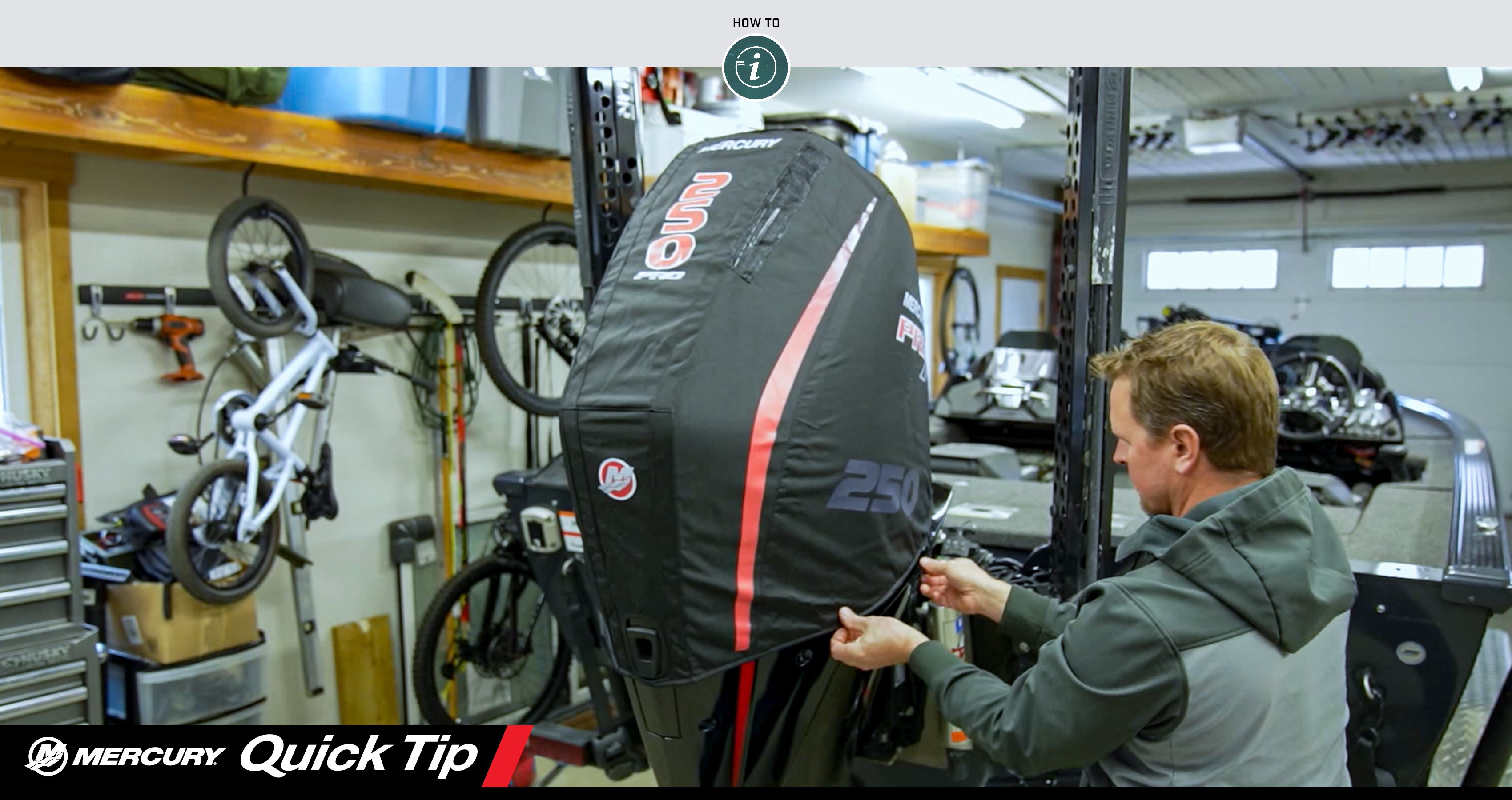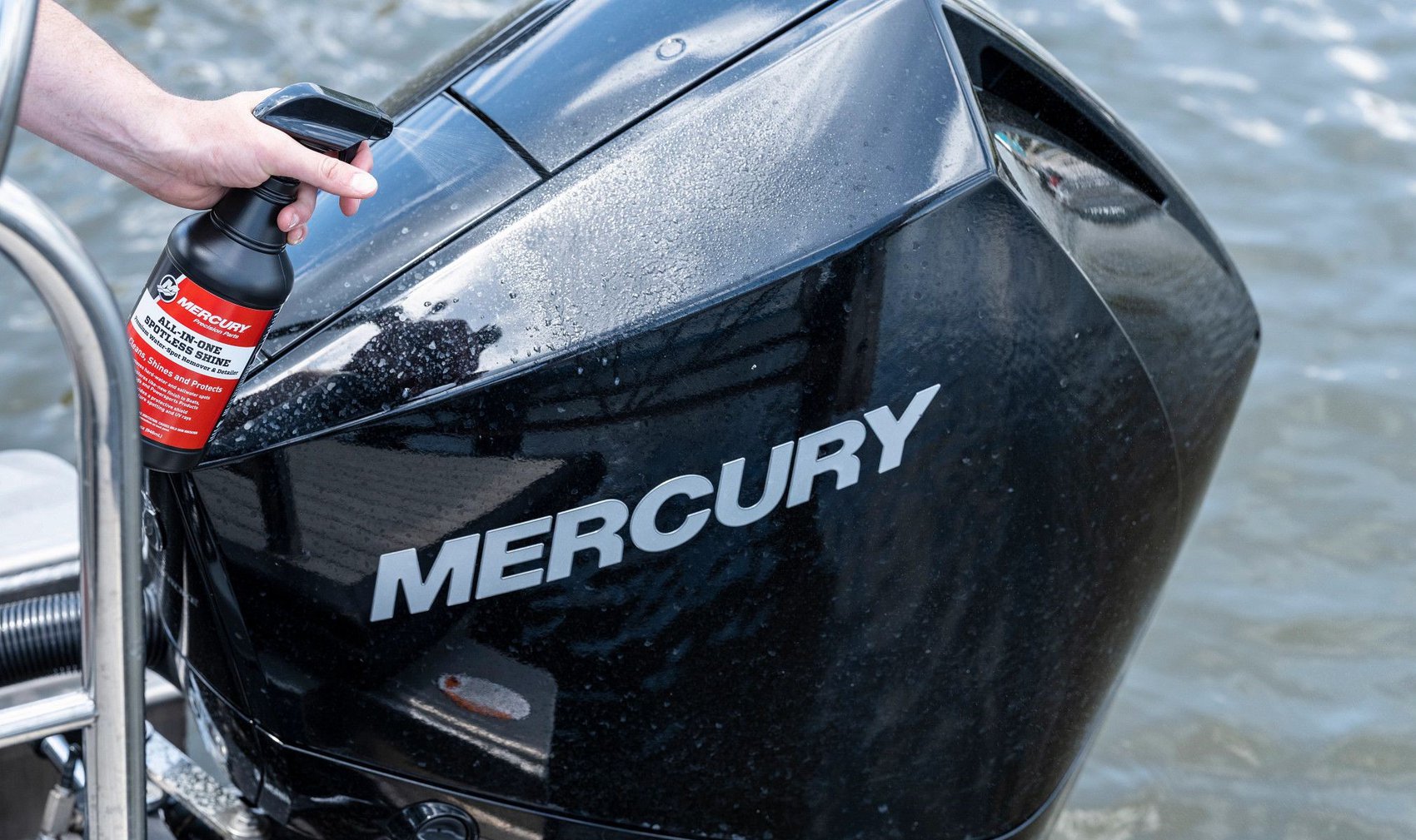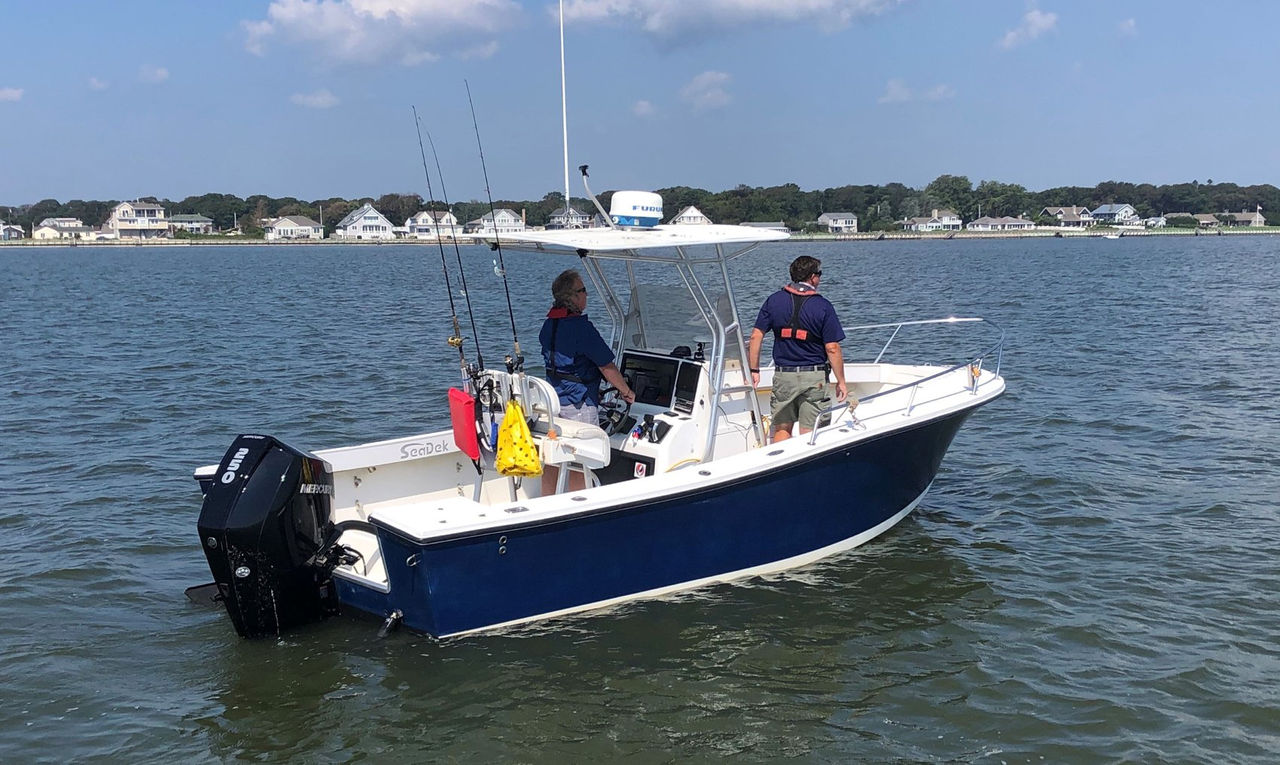(Note: This blog is by Kevin Falvey, the editor-in-chief of Boating Magazine. He recently repowered his boat with a new Mercury outboard and select SmartCraft digital technologies. You can follow along with the project in a multiple-part series that Falvey continues to update at BoatingMag.com/repower2020/.)
As the editor-in-chief of Boating Magazine, I use my boat for product tests, as a chase boat and as a photo boat. I’m also an avid angler. So, whether I’m working, chasing stripers in the dark of night, heading to the grounds in dense Long Island fog or busting through Shinnecock Inlet in New York to head offshore, I absolutely require reliability and performance from my outboard. The safety of my crew and my livelihood demand this.
When the time came to repower my Regulator 23, called Breakaway, I chose a Mercury V8 250hp FourStroke outboard.
There are many reasons why it was the right choice. First, I like the performance of the FourStroke engine. My Regulator 23 is heavy, at 3,800 pounds dry weight. It carries 184 gallons of fuel and sports a wave-cleaving 24-degree transom deadrise. It is a lot of boat for its size. The torque of the 4.6L V8 FourStroke engine allows me to run a large-diameter prop, which helps get the boat on plane and gives me better control. Yet, the engine still weighs 90 pounds less than the V6 four-stroke Suzuki DF250 outboard it replaced.
After trialing several props, I chose a 15-inch pitch Mercury Mirage Plus. I’ve increased top speed from 40 to 43.2 mph at wide-open throttle (WOT) with no loss in economy between 20 and 30 mph. I’m still burning about 8 to 13 gph while operating between 3,500 and 4,500 rpm.
In that same range, the engine is quieter, yet offers a cool, throaty note. There’s no rattle or big clunk while shifting, thanks largely to the damping effect of the Flo-Torq SSR HD prop hub. The quietness of the engine and hub system is a direct result of the engineering and testing work done at the company’s state-of-the-art Noise, Vibration, Harshness (NVH) Technical Center, where Mercury works to minimize unnecessary sound from all its outboards.
The 250hp FourStroke outboard holds my boat on plane at a low 14.6 mph, which is a real asset when the sea kicks up. I plan to have the installing dealer, Hampton Watercraft & Marine, in Hampton Bays, New York, raise the engine mounting height by one hole, which could further enhance speed and economy.
My structurally sound, well-equipped older boat now enters the digital age with a Mercury SmartCraft network backbone installed. The SmartCraft technologies provide a range of conveniences, starting with the elimination of analog gauges. These were replaced with a Mercury VesselView703 display. It boasts a 9-inch touchscreen that displays all functions with daylight-viewable clarity. Now that I have SmartCraft technologies and a network backbone installed, I have greater flexibility over which screen displays what information and when, since I can also connect other multi-function displays and NMEA-2000 hardware onboard. Wireless connectivity via VesselView Mobile means that I can monitor my engine on my smartphone, too. It’s convenient to spread info across or between screens, and multiple screens provide the redundant reliability I demand. Plus, my helm station now looks cool and modern, rather than dated.
With a digitally connected engine, I enjoy a range of new operating features. With Active Trim, I can set the engine to trim itself so I don’t have to, and I can switch back to manual mode anytime I want. Digital Throttle & Shift is smooth and easy to use, and provides features such as Adaptive Speed Control, wherein the engine maintains rpm regardless of changes in load. Whether I’m running in a following sea or cutting turns while pulling my kids on a tube, I don’t have to “ride” the throttle lever anymore. Hitting the “Dock” button on my control box limits the rpm range available, making close-quarters maneuvers easier and more precise to execute. Using Smart Tow, I can set profiles for speed and acceleration for different skiers or watersports activities. There’s a lot more to like about “going digital” with SmartCraft technologies than what I listed here, but those are the features I plan to use most often.
It’s important to note that when repowering with a Mercury FourStroke engine, the boat owner is not compelled to buy everything. For example, provisions for mechanical controls and gauges are available. I declined to install electric steering for space considerations, and I use the existing hydraulic steering system. For repower, this kind of flexibility is important, since every boater’s situation is different.
I’d be remiss if I did not address reliability, which is arguably a marine engine’s most important virtue. Features such as the HD gearcase, with rugged 1 1/4-inch prop-shaft diameter, engender great confidence. I also enjoy the peace of mind that comes with having a new limited warranty on the engine, controls and SmartCraft hardware.
So far, I’ve run this engine for 43 hours, and I’m thrilled with the results. Repowering netted me a faster, more fuel-efficient boat; one that is quieter underway, is smoother to shift and sports digital systems compatible with other modern upgrades I might make. My boat is now easier to maintain, and I have more confidence than ever that I’ll bring my crew home under my own power.
If you’re interested in learning more about this repower job, I’ll continue to document my experiences at BoatingMag.com and in the pages of Boating Magazine. If you’re wondering whether you should repower your older boat, you’ll have to make that call for yourself. The choice for me was a resounding yes.




